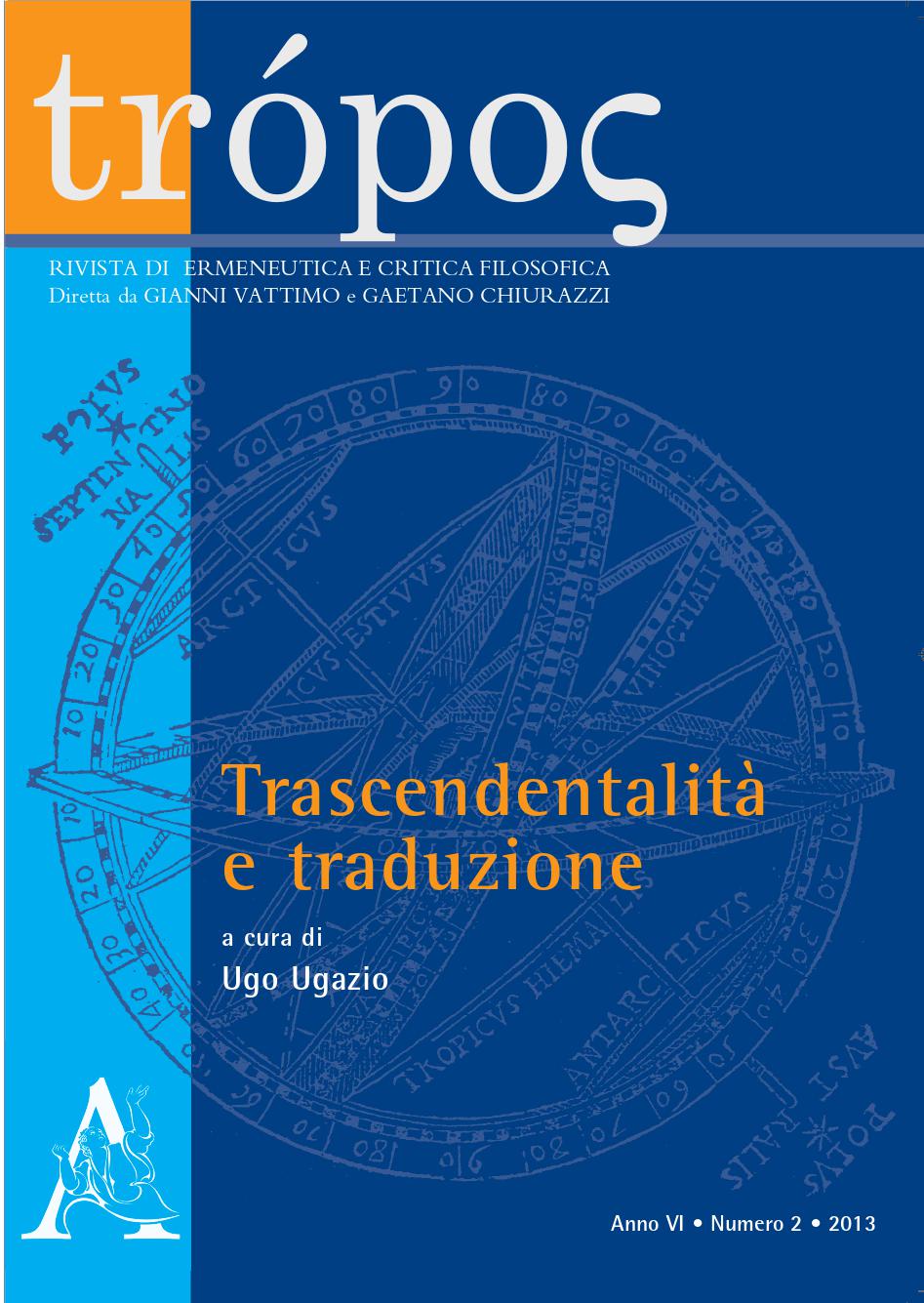Schelling e la narrazione post-trascendentale
La natura come radice magmatica del pensiero
DOI:
https://doi.org/10.13135/2036-542X/7784Keywords:
Philosophy of Nature, Narration, Symbol, Life, RomanticismAbstract
This paper aims at highlighting the problematic relationship between Schelling's philosophy and transcendental thought. In spite of the fundamental new elements brought along by Kant to the history of modern philosophy in contrast with the nefarious mechanicism of the Enlightenment, Schelling points out three main mistakes in transcendental thought: the separation between thought and being, the subtraction from nature of a safe foundation, the idea of an auto-referential subject that falls back on itself. As a consequence, he sets against this a different idea of philosophy: narration as a genealogical form of knowledge. Such philosophy is the only one that can preserve the ambiguous character of life and highlight the deep ontological contrasts characterising man, intended as an eternal fragment. Narration as a genealogical form of knowledge lets us see, in particular, how nature is the magmatic root of thought, and not the other way around.


